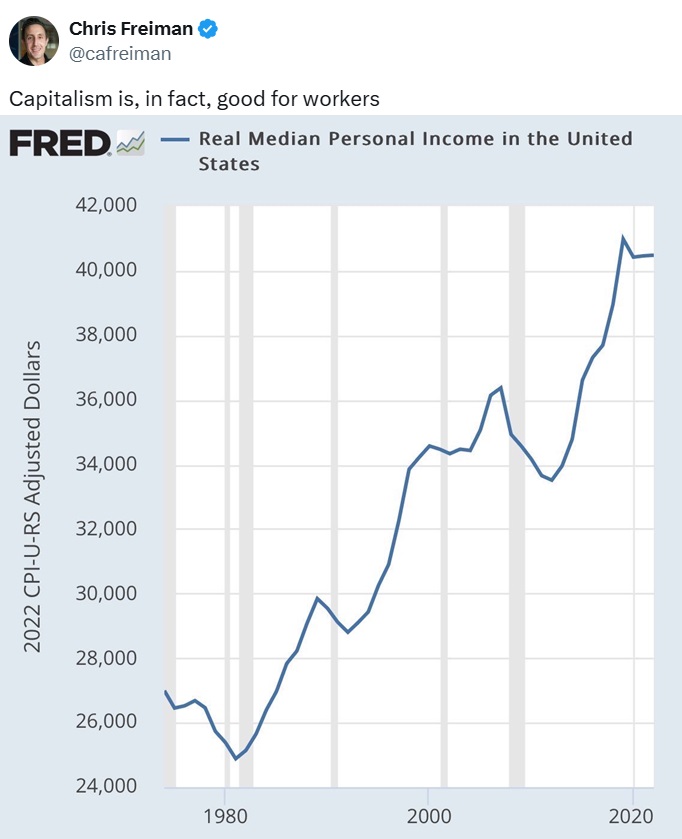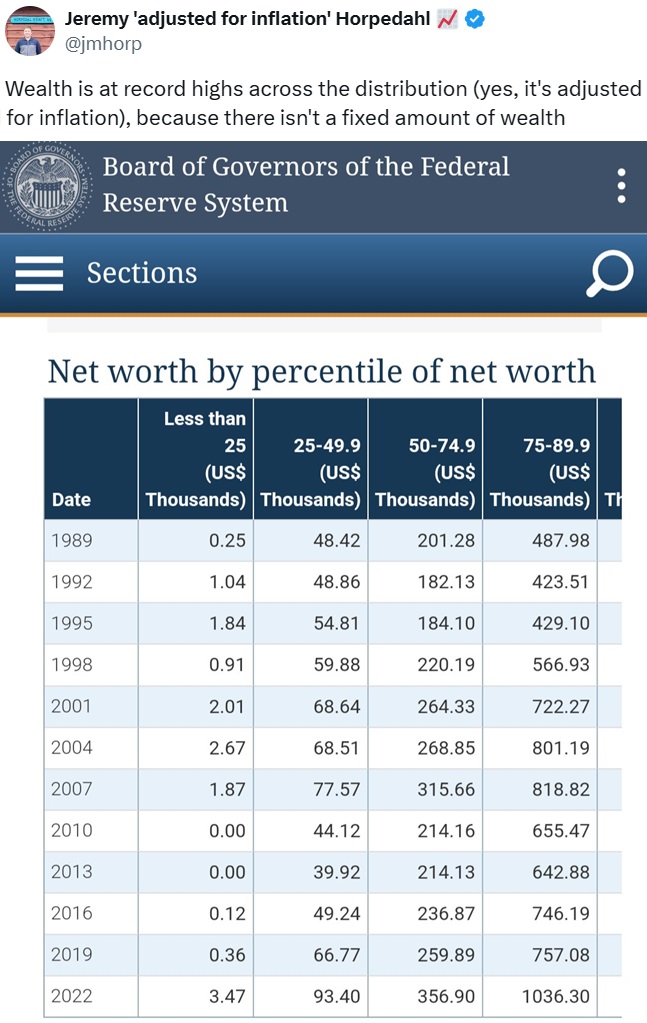Two years ago, I expressed guarded optimism about the economy and government policy.
…we don’t need perfect policy to get more prosperity. The economy simply needs “breathing room,” which will exist so long as politicians don’t get too crazy about over-taxing, over-spending, and over-regulating. After all, even small differences in annual economic growth compound into big changes in living standards.
I followed last year with my Sixteenth Theorem of Government, which said the same thing but hopefully in a more pithy and memorable way.
Today, I want to show that the economy actually is innovating faster than government is suffocating. I already did this in 2021, but let’s look at some new data.
We’ll start with this chart from Professor Chris Freiman of West Virginia University. As you can see, data from the St. Louis Federal Reserve shows that average inflation-adjusted income in the United States has been rising over time.

In other words, the hockey stick is still heading in the right direction.
Could income be growing faster? Of course. That’s why I’m always complaining about bad policies (punitive taxes, wasteful spending, excessive red tape, cronyism, protectionism, etc).
By the way, the above chart shows “median” income rather than “mean” income, which means the numbers are not influenced by very high incomes for a handful of rich people.
Now that we’ve looked at income, let’s shift to wealth.
Here’s a chart from Professor Jeremy Horpedahl at the University of Central Arkansas. He uses Federal Reserve data to show that average net worth has reached record levels for every segment of the population.

All of this data confirms that the economy is not a fixed pie. Our friends on the left who think that poverty is caused by rich people being rich suffer from the zero-sum fallacy.
- The first chart today shows that it is possible for everyone to earn more income at the same time.
- And the second one shows it is possible for everyone to accumulate more wealth at the same time.
At this point, folks on the left sometimes shift their argument. They’ll grudgingly admit that a growing economic pie enables everyone to have a bigger slice, but they’ll complain that it’s somehow wrong for a segment of the population to have a lot of income or a lot of wealth.
In other words, they’re motivated by resentment. And oftentimes that resentment leads them to support policies designed to punish success.
All I ask is that they acknowledge and admit that the policies that they want will reduce economic performance.
Interestingly, honest leftists in the tradition of Arthur Okun admit this tradeoff. But what they don’t seem to understand is that their approach will lead to lower incomes for everyone, not just rich people.
That’s something that Margaret Thatcher certainly understood.
P.S. I try to convince my lefty friends (see here, here, here, and here) that they should focus on helping poor people rather than hurting rich people.
